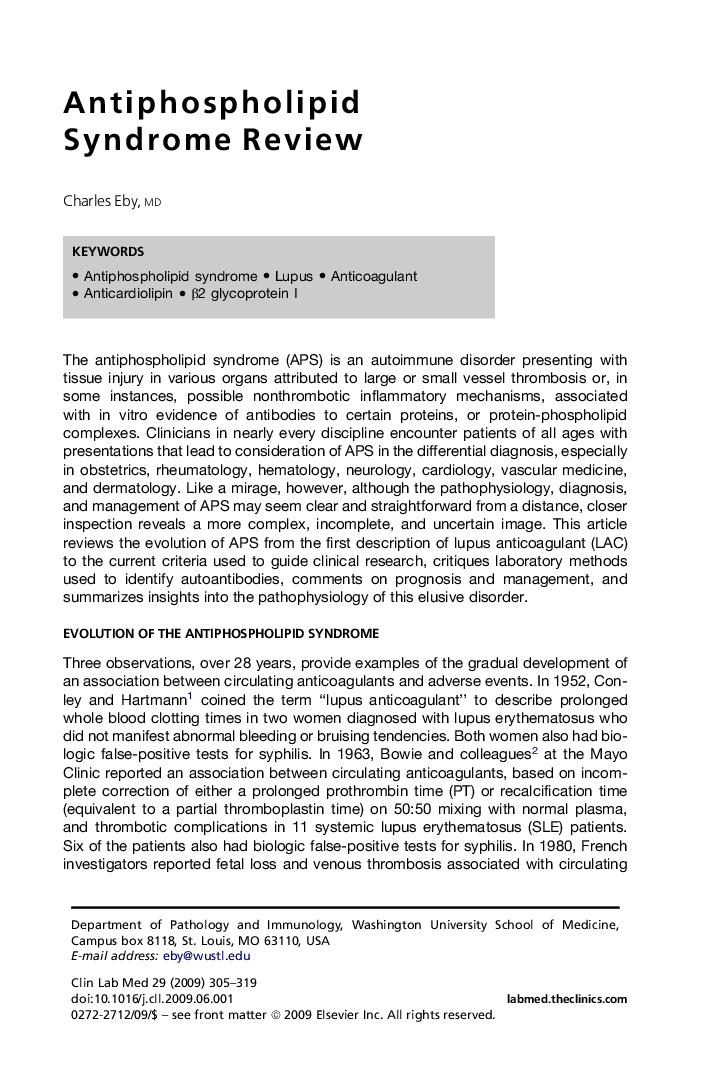| Article ID | Journal | Published Year | Pages | File Type |
|---|---|---|---|---|
| 3460785 | Clinics in Laboratory Medicine | 2009 | 15 Pages |
Abstract
The antiphospholipid syndrome (APS) is an autoimmune disorder presenting with tissue injury in various organs attributed to large or small vessel thrombosis or, in some instances, possible nonthrombotic inflammatory mechanisms, associated with in vitro evidence of antibodies to certain proteins, or proteinphospholipid complexes. Although the pathophysiology, diagnosis, and management of APS may seem clear and straightforward from a distance, closer inspection reveals a more complex, incomplete, and uncertain image. This article reviews the evolution of APS from the first description of lupus anticoagulant to the current criteria used to guide clinical research, critiques laboratory methods used to identify autoantibodies, comments on prognosis and management, and summarizes insights into the pathophysiology of this elusive disorder.
Related Topics
Health Sciences
Medicine and Dentistry
Medicine and Dentistry (General)
Authors
Charles MD,
